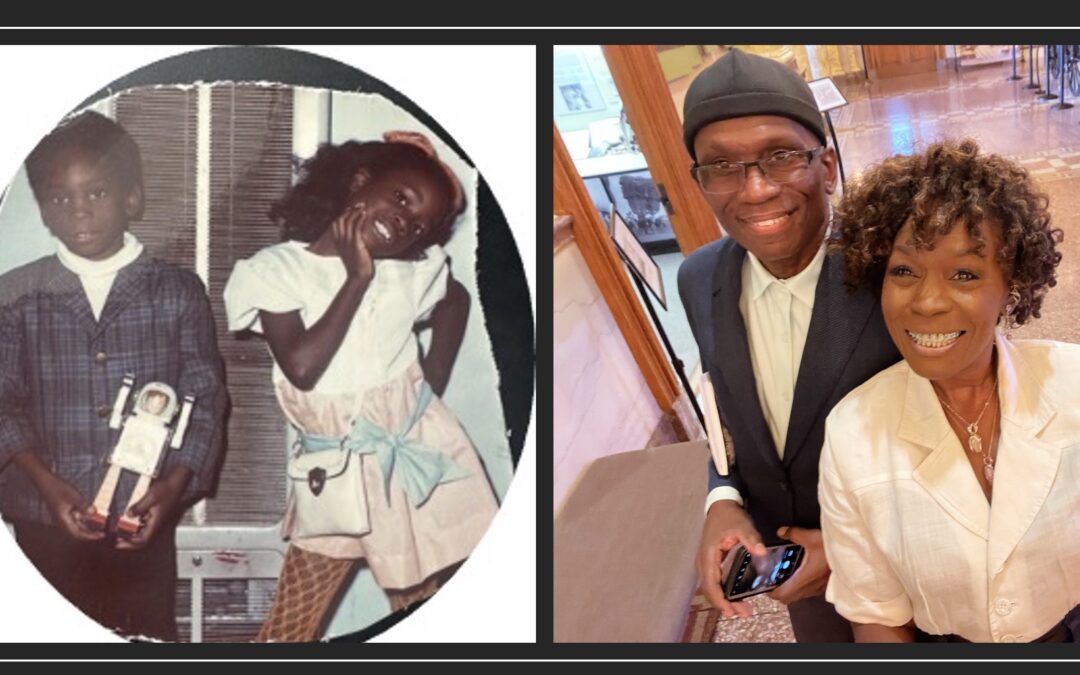
by Trudy Shines | Jul 25, 2024 | Coach, Trauma Survivors
Understanding and Healing from Abandonment Trauma Introduction Abandonment trauma can leave deep emotional scars, affecting one’s self-esteem and overall well-being. This article explores the impact of abandonment trauma, especially when it stems from parental neglect or cruelty, and offers insights into healing and rediscovering one’s innate worth. The Roots of Abandonment Trauma Abandonment trauma often originates in childhood, but it can persist and even intensify into adulthood. For many, the trauma is exacerbated by the continued neglect and cruelty. This ongoing mistreatment can manifest in various ways, including accusations, demeaning comments, and actions that further alienate and isolate the individual. In P’s case, her father has gone as far as to disown her, and her mother rarely visits or communicates when in town. The Impact on Self-Esteem Despite a trauma survivors amazing energy of love and sensitivity, experiences with abandonment have severely affected his/her self-esteem. He/she has become adept at masking low self-worth, presenting a facade of confidence. However, this concealment is only t
emporary. Over time, the weight of past traumas and new triggers causes these suppressed emotions to resurface, leading to emotional breakdowns and a feeling of being overwhelmed. Recognizing the Signs It’s crucial to recognize the signs of abandonment trauma. These may include:
- Persistent Fear of Rejection: A constant worry that others will leave or abandon you.
- Difficulty Trusting Ot
 hers: Struggling to build trusting relationships due to past betrayals.
hers: Struggling to build trusting relationships due to past betrayals.
- Self-Sabotage: Engaging in behaviors that undermine personal success or happiness.
- Emotional Outbursts: Periodic emotional breakdowns when past traumas are triggered.
- Low Self-Esteem: A pervasive senseof unworthiness or inadequacy, often masked by a false front of confidence.
Healing from Abandonment Trauma Healing from abandonment trauma is a journey that requires patience, self-compassion, and support. Here are some steps to begin the process:
- Acknowledge the Trauma
The first step is to acknowledge the trauma and its impact on your life. Denying or minimizing the pain only prolongs the healing process. Accepting the reality of your experiences is crucial for moving forward.
- Seek Professional Help
Working with a coach, therapist or counselor can provide a safe space to explore your feelings and develop coping strategies. Therapies such as Cognitive Behavioral Therapy (CBT) and Eye Movement Desensitization and Reprocessing (EMDR) are effective for processing trauma.
- Build a Support Network
Surround yourself with supportive friends, family, or support groups who understand and validate your experiences. Positive relationships can help counteract feelings of isolation and abandonment.
- Practice Self-Compassion
Be gentle with yourself. Understand that healing takes time and that setbacks are a normal part of the journey. Engage in self-care activities that nurture your mind, body, and spirit.
- Reframe Negative Beliefs
Challenge and reframe negative beliefs about yourself that stem from abandonment trauma. Replace self-critical thoughts with affirmations that acknowledge your worth and resilience.
- Establish Boundaries
Learn to set healthy boundaries with those who have caused you harm. Protecting your emotional well-being is essential, even if it means limiting or cutting off contact with toxic individuals. Moving Forward Abandonment trauma is a painful and challenging experience, but healing is possible. By acknowledging the trauma, seeking help, and practicing self-compassion, you can rebuild your self-esteem and rediscover your inherent worth. Remember, you are not defined by the actions of others, and your journey towards healing is a testament to your strength and resilience. If you’re ready to embark on your own transformative journey and reclaim your life, let’s take the first step together. Reach out to schedule your initial consultation and begin your personalized program. Together, we will navigate challenges to move your from surviving to thriving. You have the strength within you—let’s unlock it and shine brightly on your path to healing and growth. Contact me today to get started! Conclusion Abandonment trauma, especially from parents, can leave deep emotional scars. However, with the right support and strategies, individuals can heal and thrive. Embracing the journey of healing and self-discovery is the first step towards reclaiming your life and building a future filled with love, joy, and self-worth. If you’re ready to embark on this transformative journey and reclaim your life, let’s take the first step together. Reach out to schedule your initial consultation and begin your personalized program. Together, we will navigate the challenges to move from surviving to thriving. You have the strength within you—let’s unlock it and shine brightly on your path to healing and growth. Contact me today to get started!

by Trudy Shines | Jul 19, 2024 | Coach, Radiant Coach, Trauma Survivors
From Anxiety to Empowerment: A Coach’s Path to Supporting Trauma Survivors
Introduction
For much of my life, anxiety and worry were my constant companions. Growing up with a mother who suffered from paranoid schizophrenia, I lived in perpetual fear that I would inherit her condition. Coupled with the trauma of childhood sexual abuse and the heavy responsibility of caring for my younger siblings, my early years were filled with immense stress and role reversals. Despite these challenges, I have transformed my experiences into valuable lessons that I now share as a Radiant Coach for trauma survivors.
My Personal Struggle with Anxiety
 Until the age of 30, I was plagued by the fear that I would end up like my mother. This fear, combined with the traumatic experiences of my childhood, created a deep-seated anxiety that was difficult to overcome. My mother’s condition meant that, often, I had to take on adult responsibilities and care for my siblings, leading to a role reversal that added to my emotional burden.
Until the age of 30, I was plagued by the fear that I would end up like my mother. This fear, combined with the traumatic experiences of my childhood, created a deep-seated anxiety that was difficult to overcome. My mother’s condition meant that, often, I had to take on adult responsibilities and care for my siblings, leading to a role reversal that added to my emotional burden.
Reading articles on sexual abuse and understanding the feelings of guilt and hatred associated with it was a turning point for me. Through this learning, I was able to let go of the hatred and guilt that had consumed me, and I began to truly live. However, my journey to overcoming anxiety didn’t stop there. It was only the beginning of a long process of healing and self-discovery.
The Impact of Chronic Illness
During puberty, I began suffering from a painful chronic illness called boils, which was later correctly diagnosed as Hidradenitis Suppurativa (HS). Initially treated with antibiotics, the treatment depleted my immune system, exacerbating my anxiety. This physical ailment added another layer of stress to my already burdened life. However, through reading and adopting a holistic way of life, including organic living, consuming lots of fruits and vegetables, and engaging in regular sweaty workouts, I managed to heal significantly. While HS will never completely go away, it has subsided, allowing me to focus more on my mental and emotional well-being.
The Importance of Challenging Beliefs
One of the most powerful tools I have learned and now teach as a Radiant Coach is the practice of challenging beliefs. This was not something I was taught as a child, but it has become a cornerstone of my approach to managing anxiety and worry. My coaches introduced me to this transformative practice, which has been instrumental in my healing process.
What is Challenging Beliefs?
Challenging beliefs involves questioning the validity of the thoughts and assumptions that fuel our anxiety. Often, we accept these thoughts as truths without examining their basis. By scrutinizing these beliefs, we can identify those that are irrational or unhelpful and replace them with more balanced and realistic ones.
How to Challenge Beliefs
- Identify the Belief: Start by identifying the specific thought or belief that is causing anxiety. For example, I often worried that I would develop schizophrenia like my mother.
- Examine the Evidence: Look at the evidence for and against this belief. Is there concrete evidence that supports it? In my case, I realized that while genetics play a role, environmental factors and personal experiences are also significant.
- Consider Alternatives: Think about alternative explanations or perspectives. Could there be another way to view the situation? I began to see that my mother’s condition did not define my fate and that I had the power to shape my own life.
- Test the Belief: Experiment with thinking differently. Replace the irrational belief with a more balanced thought and observe the impact on your anxiety. I started to tell myself, “I am not my mother, and I have control over my mental health,” which significantly reduced my worry.
Moving Forward with Confidence
My journey from a life dominated by anxiety and worry to one of confidence and resilience has not been easy. It has required a conscious effort to challenge and change my beliefs, but the rewards have been immense. Not only have I found peace and stability, but I have also turned my experiences into a source of strength and inspiration for others.
As a Radiant Coach, I now help others navigate their own journeys through trauma, stress, and anxiety. I share my story to show that it is possible to overcome even the most daunting challenges and to live a life filled with joy and purpose.
Conclusion
Anxiety and worry may have been my companions for much of my life, but they no longer define me. By challenging my beliefs and learning to let go of guilt and hatred, I have reclaimed my life and now guide others to do the same. If you are struggling with anxiety, remember that you have the power to change your thoughts and, ultimately, your life. It is never too late to begin living fully and radiantly.

by Trudy Shines | Jul 17, 2024 | Coach, Radiant Coach, Spiral Journey of Success, Trauma Survivors, Uncategorized

Lulu Magee Stroud (1882 – 1953), My great grandmother, was a woman of Creek Nation Native American ancestry, blended with Scandinavian and African lineage.
What is Trauma?
Trauma is a word we often hear, but do we truly understand its depth and complexity? From its Greek origins meaning “wound” to its profound impact on our lives, trauma shapes our experiences in ways both visible and unseen. But what exactly is trauma? Where does it come from, and why do we experience it? Can it be prevented, and is it always detrimental?
In this exploration of trauma, we’ll delve into these questions and more. We’ll examine how trauma affects us psychologically and physically and discuss strategies for moving beyond mere survival to a state of thriving. As your Radiant Coach, I believe in the power of transforming traumatic experiences into catalysts for growth and positive change.
Join me as we unpack the concept of trauma, investigate its various forms, and discover pathways to healing. We’ll explore how acknowledging our past can empower our future, and how sharing our experiences can light the way for others. Whether you’re a trauma survivor, a supporter, or simply seeking to understand, this journey from surviving to thriving is one we can embark on together.
Understanding Trauma
Definition and Forms of Trauma
Trauma is an emotional response to a terrible event such as an accident, crime, natural disaster, physical or emotional abuse, neglect, or witnessing violence. The term “trauma” originates from the Greek word for “wound,” emphasizing its impact on both mind and body. Trauma can be categorized into three main types:
1. Acute Trauma: Results from a single incident, such as a car accident or natural disaster.
2. Chronic Trauma: Involves repeated and prolonged exposure to highly stressful events, such as ongoing abuse or domestic violence.
3. Complex Trauma: Exposure to multiple traumatic events, often of an interpersonal nature, like childhood abuse.
The effects of trauma can be long-lasting, influencing our mental health, behavior, and overall well-being.
-
Psychological Effects: Trauma can lead to anxiety, depression, post-traumatic stress disorder (PTSD), flashbacks, and other mental health issues.
-
Physical Effects: Chronic pain, headaches, digestive issues, sleep problems, and other physical symptoms can manifest as a result of trauma.
-
Behavioral Changes: Substance abuse, self-harm, and avoidance behaviors.
-
Cognitive Impacts: Memory issues, difficulty concentrating, and negative self-perception.
-
Statistics and Quotes: According to the National Center for PTSD, about 60% of men and 50% of women experience at least one trauma in their lives. Dr. Bessel van der Kolk, a leading expert in trauma research, states, “Trauma is not just an event that took place sometime in the past; it is also the imprint left by that experience on mind, brain, and body.”
The Path to Healing
The Concept and The Significance
Healing from trauma is a deeply personal and often non-linear journey. It involves moving from a state of merely surviving to thriving, where individuals use their experiences to grow and help others. See my article on The Spiral Journey to Success https://trudyshines.com/2024/06/3143/
Personal Stories
Real-life stories of trauma survivors can provide hope and inspiration. For instance, Shan, who was hit by a car and had a 6% chance of survival, celebrated her recovery with a ‘Stayin’ Alive’ party, demonstrating resilience and the power of community support.
Support Systems
Support systems play a crucial role in the healing process. Connecting with others, whether through support groups or trusted friends and family, can provide emotional support and practical advice.
Strategies for Healing
Actionable Strategies
1. Acknowledge the Event: Accepting and acknowledging the traumatic event is the first step towards healing.
2. Accept Support: Seek and accept support from loved ones and professionals (if I can’t help, I have a network of people that I can refer you to).
3. Practice Self-Care: Engage in activities that promote physical and emotional well-being, such as exercise, healthy eating, and adequate sleep (see AJ DeDeaux – your sleep expert.
4. Mindfulness and Grounding Techniques: My energy practices help you work at these techniques one day at a time – they will help you manage anxiety and flashbacks by focusing on the present moment.
Mindfulness Practices
Trauma-informed mindfulness practices are adapted to the unique needs of trauma survivors. These practices help you manage your symptoms and helps you feel safer in your bodies (you have many hats/personalities/bodies that continue to guide you – use them).
Importance of Self-Care Routines
Self-care routines self-care and self-love is not selfish and is essential for recovery. Activities like journaling, meditation, and engaging in hobbies can help individuals reconnect with themselves and their surroundings.
Developing a Positive Mindset
Developing a positive mindset involves focusing on you and believing and know that you have personal strengths – you wouldn’t be here today if you didn’t; they helping you set achievable goals. This helps you regain your sense of control and purpose in your life.
The Role of Professional Support
Professional support can be a cornerstone in the journey to healing from trauma.
Benefits of Professional Support
Professional support, such as therapy, can provide structured and effective ways to manage trauma. Therapies like Cognitive Behavioral Therapy (CBT) and Eye Movement Desensitization and Reprocessing (EMDR) are particularly effective.
Testimonials from Clients
Hearing from clients who have benefited from professional support can offer hope and encouragement.
Many clients have shared positive experiences with professional support. For example, David, who suffered a traumatic brain injury, successfully returned to work as an IT security consultant after receiving extensive therapy.
Overview of My Services
As a Radiant Coach, I offer personalized coaching sessions, workshops, and resources designed to support trauma survivors in their journey from surviving to thriving.
Conclusion
Understanding trauma and its effects is the first step towards healing. By understanding trauma, seeking support, and engaging in self-care practices, survivors can not only heal but potentially experience growth and transformation.
Trauma is a complex and deeply personal experience, but recovery is possible.
If you’re struggling with the effects of trauma, don’t hesitate to reach out for professional help—you don’t have to face this alone.
Ready to start your journey from surviving to thriving? Contact me for a free consultation and let’s begin your path to healing together. Take the first step towards healing and thriving.
by Trudy Shines | Jul 11, 2024 | Chakra, Coach, I Do, Radiant Coach, Trauma Survivors, Yellow-energy day
A Day for Action and Ambition: Embrace the Energy of Yellow
Yellow is the color of energy, passion, action, and ambition. For trauma survivors, harnessing the power of the yellow chakra can be transformative. This center energy source is where all colors stem from, fueling your journey to thriving.
Take a moment today to focus on your ambitions and the actions that will propel you forward. Embrace the energy and power within you. Remember, you have the passion and focus needed to achieve your goals.
Key Attributes of Yellow Chakra Energy Day:
- Passion: Let your enthusiasm guide you.
- Action: Take decisive steps toward your goals.
- Power: Recognize the strength within you.
- Energy: Channel your vigor into productive endeavors.
- Ambition: Set your sights high and strive for excellence.
- Focus: Stay determined and unwavering in your pursuits.
Daily Affirmation
“I am a powerhouse of energy and ambition. I take action with passion and focus, knowing that I have the power to achieve my dreams.”
#BeYourTruShines #YellowChakra #EnergyDay #TraumaSurvivors #Passion #Action #Power #Ambition #Focus
Feel the radiant energy of the yellow chakra guiding you towards a vibrant and thriving life.
by Trudy Shines | Jul 2, 2024 | Chakra, Coach, Creative Habits, I Desire, Orange Day, Radiant Coach, Trauma Survivors
The Power of Hope in Healing and Growth
 In my journey as a radiant coach for trauma survivors, I came across a profound saying in “Life’s Little Instruction Book”:
In my journey as a radiant coach for trauma survivors, I came across a profound saying in “Life’s Little Instruction Book”:
“Never deprive someone of hope; it might be all they have.”
This simple yet powerful statement resonates deeply with the core of my coaching practice. As someone dedicated to helping individuals transition from surviving to thriving, the essence of hope is a guiding light for my three distinct coaching personas.
Adults Who Were Once At-Risk Youth/Foster Children
Firstly, for adults who have navigated the complexities of growing up as an at-risk youth or foster child hope is often a fragile yet vital element in their lives. My coaching approach focuses on reigniting this hope, thereby empowering them to envision and create a future filled with possibilities. By fostering resilience and rediscovering joy, we can turn hope into a driving force for positive change.
Victims of Sexual/Spousal Abuse
Secondly, survivors of sexual or spousal abuse often find themselves in a place where hope seems elusive. My mission is to help these individuals reclaim their power and rebuild their lives, grounded in the belief that hope can catalyze healing. Through personalized support and a compassionate approach, we work together to transform pain into strength, allowing hope to flourish once again.
Military/War Survivors
Finally, for those who have served in the military or experienced the traumas of war, hope can be a beacon in the darkest times. My coaching for military and war survivors is centered on harnessing hope to navigate the path of recovery and growth. By embracing hope, these individuals can rebuild their lives with renewed purpose and resilience.
In conclusion, hope is not just a fleeting feeling but a fundamental element in the journey of healing and growth. As a coach, I am committed to nurturing hope in every individual I work with, ensuring it becomes a steadfast companion on their path to a thriving life.
#BeYourTruShines #RadiantCoach #TraumaSurvivors #HopeHeals #Resilience #Growth #Healing #TraumaRecovery

by Trudy Shines | Jun 18, 2024 | Coach, I Do, Juneteenth, Radiant Coach, Trauma Survivors
Triumph Over Trauma: Building a Legacy of Strength and Support, Inspired by Juneteenth
Growing up as a black woman with a mother suffering from paranoid schizophrenia, exacerbated by Huntington’s disease, was a journey filled with challenges and resilience for me. Despite the adversities, I emerged strong, guided by a foundation of strong family leaders and a legacy of never giving up and always learning. Today, I am not just a survivor but a beacon of hope, paying forward my experiences through my coaching business and an inspiring documentary project.
A Legacy of Resilience
My family has a rich history of perseverance and strength. My story is deeply intertwined with the legacy of my ancestors, who instilled in me the values of resilience and continuous growth. Growing up in a household marked by the challenges of my mother’s mental health struggles, I found solace and strength in the unwavering support of my extended family. This foundation helped me navigate the complexities of my upbringing and emerge as a strong, determined individual.
Turning Adversity into Strength
My journey from a trauma survivor to a radiant coach is a testament to my resilience. My experiences have shaped me into a compassionate and understanding coach, particularly attuned to the needs of trauma survivors. I believe in the power of learning and growing through helping others, a philosophy that guides my coaching practice. I work with individuals who have faced significant traumas, helping them transition from merely surviving to truly thriving.
Paying It Forward: My Coaching Journey
In my coaching practice, I focus on building resilience, rediscovering joy, and shaping a life of meaning for my clients. I incorporate teachings, mindsets, and philosophies from various sources, blending them with my unique experiences to offer holistic support to trauma survivors. My brand, BeYourTruShines, reflects my commitment to authenticity and empowerment, guiding my clients to embrace their true selves and shine brightly despite their past traumas.
“Running to Harvard”: A Story of Perseverance
I am also working on a documentary titled “Running to Harvard,” which chronicles the untold story of mixed African- and Native-American Dolphus Stroud. Denied funding for travel due to the color of his skin, Dolphus set out on a 2,000-mile journey by foot to compete in the 1928 Olympic Trials at Harvard Stadium. This story of determination and perseverance resonates deeply with my own experiences and the values I uphold.
Continuing the Legacy
As we commemorate Juneteenth and celebrate the resilience of black men and women throughout history, my journey serves as a powerful reminder of the strength and determination that have defined generations. My work, both as a coach and a documentarian, is a tribute to those who have fought tirelessly for their dreams and a beacon of hope for those who continue to struggle.
In conclusion
My story is one of triumph over adversity, of turning personal challenges into a source of strength and inspiration for others. Through my coaching business and documentary project, I am paying forward the lessons of resilience and continuous growth, embodying the legacy of my family and inspiring others to never give up. As we look back on the progress made and the struggles overcome, let us continue to support and uplift those who are determined to shine, just as I do every day.

 hers: Struggling to build trusting relationships due to past betrayals.
hers: Struggling to build trusting relationships due to past betrayals.

 Until the age of 30, I was plagued by the fear that I would end up like my mother. This fear, combined with the traumatic experiences of my childhood, created a deep-seated anxiety that was difficult to overcome. My mother’s condition meant that, often, I had to take on adult responsibilities and care for my siblings, leading to a role reversal that added to my emotional burden.
Until the age of 30, I was plagued by the fear that I would end up like my mother. This fear, combined with the traumatic experiences of my childhood, created a deep-seated anxiety that was difficult to overcome. My mother’s condition meant that, often, I had to take on adult responsibilities and care for my siblings, leading to a role reversal that added to my emotional burden.



 In my journey as a radiant coach for trauma survivors, I came across a profound saying in “Life’s Little Instruction Book”:
In my journey as a radiant coach for trauma survivors, I came across a profound saying in “Life’s Little Instruction Book”: